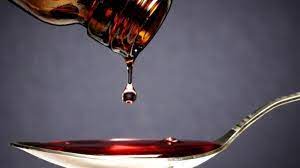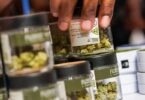Banjul (AFP): A trial opened Tuesday in The Gambia’s capital Banjul over the deaths of small children who took a cough syrup made by the India-based Maiden Pharmaceuticals.
Justice Ebrima Jaiteh of the High Court in Banjul adjourned the proceedings until November 7 after finding that three state defendants who had failed to appear “lacked diligence”.
Some 70 children aged 5 and under died in 2022 after taking the over-the-counter medicines, leading to a national outcry in the West African nation of about 2.5 million people.
Nineteen plaintiffs representing family members who were victims in July filed the suit, according to Salieu Taal, president of The Gambia Bar Association and one of the lawyers representing the plaintiffs.
The families are suing five defendants — Maiden Pharmaceuticals, local distributor Atlantic Pharmaceuticals, the Medical Controls Agency (MCA), the Ministry of Health and Attorney General Dawda A. Jallow — to demand they admit that the children were killed by consuming contaminated medicines.
They are also suing for an admission that the MCA failed in its statutory duty to regulate the quality and safety of medicines.
They are demanding 15 million Dalasis (about $230,000) per child in damages.
None of the five defendants were present on Tuesday.
The health ministry, MCA and attorney general requested a delay to the start of the trial, a motion the judge dimissed. He ordered the three to pay 10,000 Dalasis to the plaintiffs.
The trial had already been delayed in July after the attorney general and health ministry claimed they had not been served subpoenas with adequate time to familiarise themselves with the lawsuit.
Beginning in September last year, The Gambia ordered a recall of several cough and cold medications, as well as all products manufactured by the Indian laboratory Maiden Pharmaceuticals from which the adulterated syrups originated, after the deaths from kidney failure of at least 70 young children.
It subsequently banned all products from the Indian firm.
According to the World Health Organization (WHO), lab tests found “unacceptable amounts” of diethylene glycol and ethylene glycol, which are commonly used as antifreeze and can be fatal when ingested.
The toxic impact from these substances includes “acute kidney injury which may lead to death,” the agency has said.







